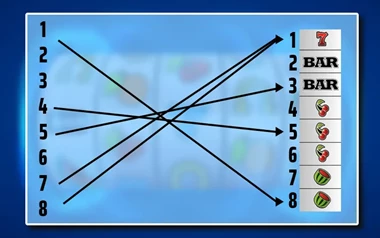When the economy falters, habits shift. Spending shrinks. Luxuries take a back seat. But online gambling? Surprisingly resilient. While many industries feel the squeeze, this one often hums along or even grows.
Why gambling doesn’t always dip with the market
You’d expect people to tighten belts. Yet, data tells a different story. When recession bites, gambling persists. For some, it becomes a form of cheap escapism. A small stake, a spin, a moment of thrill. It fills the space where holidays, meals out, or concerts once lived.
This isn't new. Historically, gambling has been oddly recession-resistant. While some sectors slow down, online casinos and betting sites often see consistent or rising traffic. People chase wins when they feel like everything else is slipping.
Here are the best online gambling sites in Ireland.
What players actually do differently during downturns
Though overall participation remains stable—or grows—the type of gambling changes. Players become cautious. Big bets fade. Low-stake games flourish. It’s not that people stop gambling. They just play smaller and smarter.
1. Low-risk games take centre stage
Users switch from high-stake table games to cheaper slots or lotteries. They're looking for a flutter, not a financial stretch. Micro-stakes allow entertainment without guilt.
2. Lottery and bingo hold steady
Unlike casino games, which can feel aggressive, lotteries and bingo offer a sense of hope and community. These games attract players looking for light-hearted chances, not heart-racing risk.
3. Mobile becomes the main hub
As budgets shrink, people cut back on outings. With phones in hand, they gamble from their sofas. The mobile-first world means apps become the digital casino floor.
4. In-play sports betting continues
Even when wallets are thin, fans want skin in the game. Real-time betting keeps the thrill alive during matches, even with tiny bets.
5. A rise in emotional betting
Financial pressure can nudge some into chasing losses. Emotional decision-making rises. That one win could solve a bill—or at least feel like it might. It’s a risky headspace.
Trusted gambling sites become even more important
Trust becomes the anchor when money is tight. Players avoid shady platforms. They don’t want to risk poor withdrawals or unfair practices.
Trusted gambling sites become go-to choices. Why? Because they provide reliability. Prompt payouts. Clear terms. Support when needed. Players want peace of mind, not more uncertainty.
In hard times, gamblers value stable ground. They look for transparent platforms where they feel protected. Reputation, licensing, and visible support tools all matter more than ever.
How operators respond to financial downturns
It’s not just the players shifting strategy. Gambling operators adjust too. They read the room and adapt their tactics.
- They spotlight low-risk games.
- They push mobile-friendly offers.
- They highlight tools for control—daily limits, session reminders, and cool-off options.
Some even run ‘responsible play’ campaigns. Not out of charity—but because long-term trust beats short-term gain. One unhappy player won’t return. A supported one will.

The Regulation Wave
The regulation wave
Economic uncertainty puts regulators on alert. More users gambling in hard times means more risk of harm. That invites stronger rules.
Countries tighten advertising laws. Some block credit card deposits. Others force mandatory loss limits. And many push gambling sites to identify risky patterns.
There’s growing pressure to act when players show warning signs. Sudden deposit spikes. Odd hours. Chasing behaviour. These are red flags that good platforms now monitor more closely.
Signs things might be going too far
For many, gambling is a harmless hobby. But for a few, especially during tough times, it can tip into something darker.
Red flags include:
- Spending more than usual after financial bad news
- Lying about bets to family
- Gambling to escape stress or sadness
- Chasing losses as if they’ll fix everything
These patterns can grow quietly. A tenner here, a hundred there. Then the overdraft. Then silence. It’s not always visible until it’s deep.
That’s why having limits, alerts, and exclusion tools is crucial. Modern platforms now offer them upfront. But players still need to use them.
What players can do
You can still play—even during tough times. But play smart.
- Set a spending cap you won’t break
- Use self-exclusion if needed
- Choose trusted gambling sites with clear support options
- Ask yourself: am I playing for fun, or for relief?
The answer matters.
What operators can do
- Show limits clearly
- Flag risky patterns early
- Make it easy for players to pause, step away, or get help
Long-term loyalty beats short-term profit. Operators who support users in lean times build lasting trust.
What regulators can do
- Enforce visible spending alerts
- Promote safer play tools
- Stop misleading ads that make gambling look like a guaranteed win
Downturns don’t mean the end of gambling. But they do increase the stakes—not on the screen, but in people’s lives.
Recessions reveal behaviours. And online gambling is no exception. When wallets shrink, players become more selective, cautious, and emotional. Yet gambling continues, because it scratches an itch: the need for fun, hope, or even escape.
Trusted gambling sites shine during these times. They offer not just games, but security. Reliability. Structure. They let players engage on their terms—not the platform’s.
So if you're gambling during a downturn, keep your head clear. Stick to limits. Choose well. And if it stops being fun, take a break. No game is worth your peace of mind.






